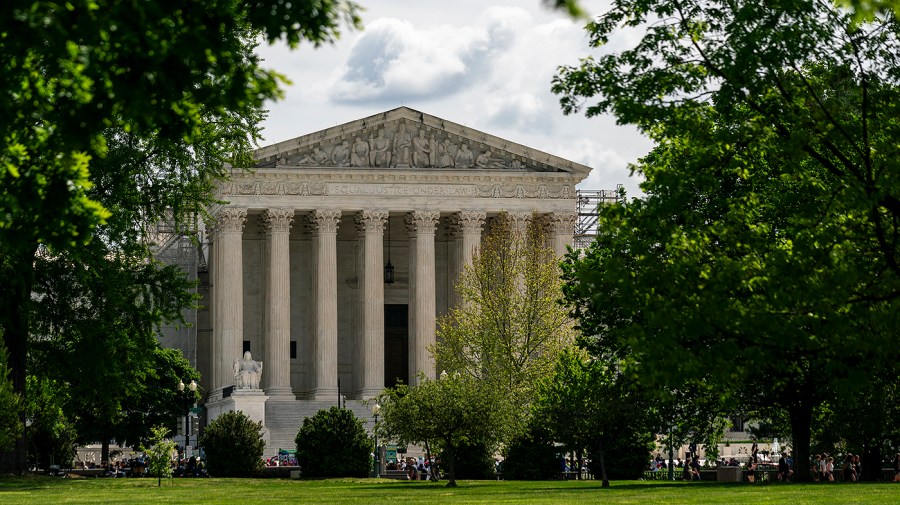A divided Supreme Court seemed skeptical that Idaho’s strict abortion ban conflicts with a federal emergency care law, but there appeared to be a split by gender as well as ideology during the nearly two hours of argument.
The four female justices, including conservative Amy Coney Barrett, pushed back the hardest against Idaho’s assertion that its law, which prohibits doctors from performing an abortion except when a woman’s life is in danger, supersedes the federal emergency care statute EMTALA.
Doctors face up to five years in prison for violating Idaho’s law.
The liberal justices in particular asked detailed questions about what would constitute a medical emergency, zeroing in on complications that would rob a woman of her reproductive organs or put her at risk of sepsis.
The case centers on a federal law known as EMTALA, or the Emergency Medical Treatment and Active Labor Act, which requires federally funded hospitals to provide stabilizing care to emergency room patients no matter their ability to pay.
The Biden administration argues that even in states where abortion is banned, EMTALA says hospitals must be allowed to terminate pregnancies in rare emergencies where a patient’s life or health is at serious risk.
Barrett had sharp questions for Idaho’s attorney Joshua Turner over just how much discretion doctors really have to make decisions in medical emergencies that may not be life-threatening.
Turner argued that the laws allows decisions to be made on a case-by-case basis, but Barrett was critical of that argument and accused Turner of “hedging.”
Barrett’s questioning doesn’t always give an indication of how she will vote, and the three liberal justices need at least two conservatives to side with them in order for the Biden administration to win the case.
DEVELOPING

